Disclosure: This article contains affiliate links. We may earn a commission from purchases at no extra cost to you, which helps our travel content.
The moment I stepped off the plane in Eswatini (formerly Swaziland), I knew this wouldn't be just another consulting trip. Having visited over 40 countries for work, I've developed a knack for peeling back the tourist veneer of destinations. But Mbabane—nestled in rolling hills and pulsing with a rhythm that effortlessly blends tradition with modernity—offered something uniquely authentic. For students seeking a meaningful cultural immersion on a budget, this small African capital delivers experiences that no algorithm could possibly recommend. My two-week stay during the vibrant summer season revealed a side of Eswatini that most visitors never encounter.
Finding Your Temporary Home: Budget Accommodation with Local Character
Forget the sanitized hotel experience. To truly understand Mbabane's cultural fabric, accommodation selection becomes your first meaningful choice. After years of business travel, I've learned that where you rest your head fundamentally shapes your understanding of a place.
For my fortnight in Mbabane, I opted for Lidwala Backpacker Lodge, a community-oriented guesthouse where the 120 Emalangeni (approximately £5) per night for a dormitory bed included something far more valuable than thread count—authentic connection. The communal kitchen became my evening classroom, where local staff taught me to prepare liphalishi (maize porridge) while sharing insights about seasonal agricultural patterns that still dictate much of Swazi life.
For those seeking more privacy without sacrificing cultural immersion, numerous families offer rooms through platforms like Airbnb. My colleague stayed with the Dlamini family near Mbabane Central Market, paying 350 Emalangeni nightly (about £15) for a private room and the invaluable experience of multi-generational family dinners where technology use, educational approaches, and cultural preservation were discussed with remarkable candor.
During summer months (November-February), securing accommodation with proper ventilation is essential. My portable fan proved indispensable during particularly warm nights when the mountain breeze failed to materialize.
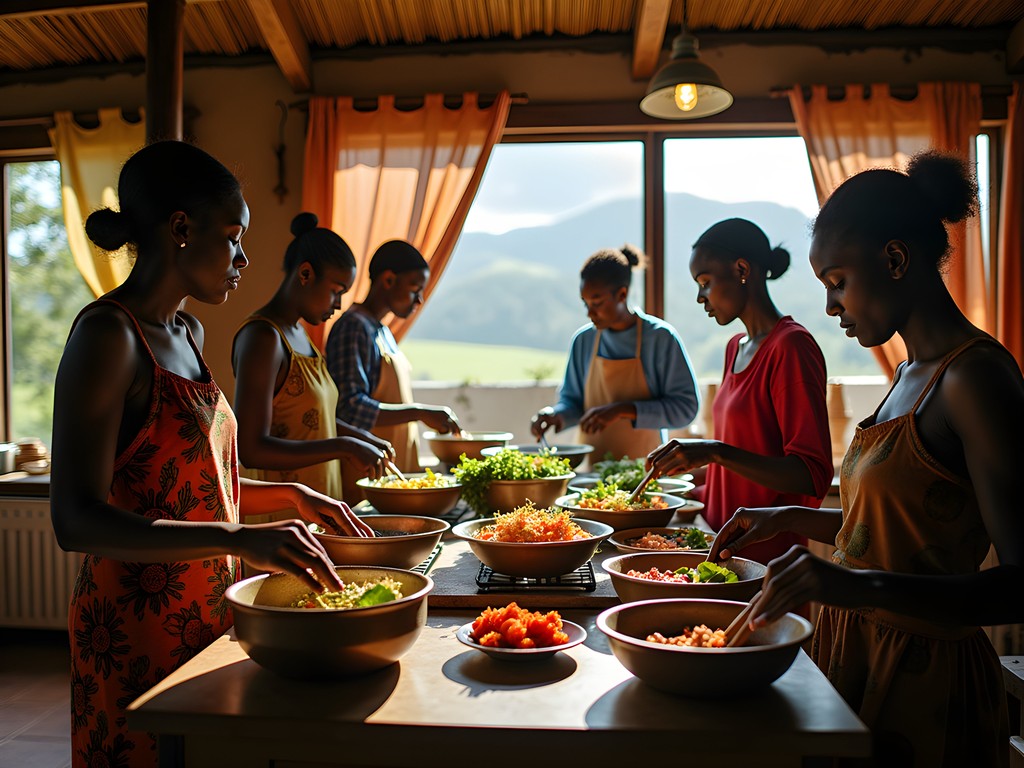
💡 Pro Tips
- Book accommodations with communal kitchens to interact with locals while cooking
- Consider homestays for deeper cultural immersion—many aren't listed online but can be arranged through local connections
- Pack a small gift from your home country to thank hosts—cultural exchange items are appreciated more than money
Navigating Mbabane's Seasonal Rhythms
Understanding Mbabane requires recognizing how profoundly the seasons influence daily life—something my cross-cultural research has consistently highlighted across global tech hubs, yet nowhere as visibly as in Eswatini.
Summer (November-February) transforms Mbabane into a verdant paradise with afternoon thunderstorms that locals plan their entire day around. These aren't mere weather events but social demarcations—before-rain and after-rain activities structure community life in ways that fascinated my analytical mind. Markets swell with seasonal produce, particularly the mangoes that appear in everything from breakfast to evening sundowners.
The Ezulwini Valley Market operates on a different energy during summer months, with artisans creating in the open air rather than within confined spaces. This seasonal shift creates an immersive workshop environment where you can watch master weavers transform sisal into intricate baskets—a technical process that mirrors efficient systems design in my consulting world, albeit with roots in centuries-old knowledge transfer rather than digital documentation.
To navigate the summer heat while exploring, I relied heavily on my insulated water bottle, which kept water cold despite temperatures regularly exceeding 30°C. For afternoon thunderstorms, my packable rain jacket proved essential—lightweight enough to carry everywhere yet surprisingly effective against the short but intense downpours.
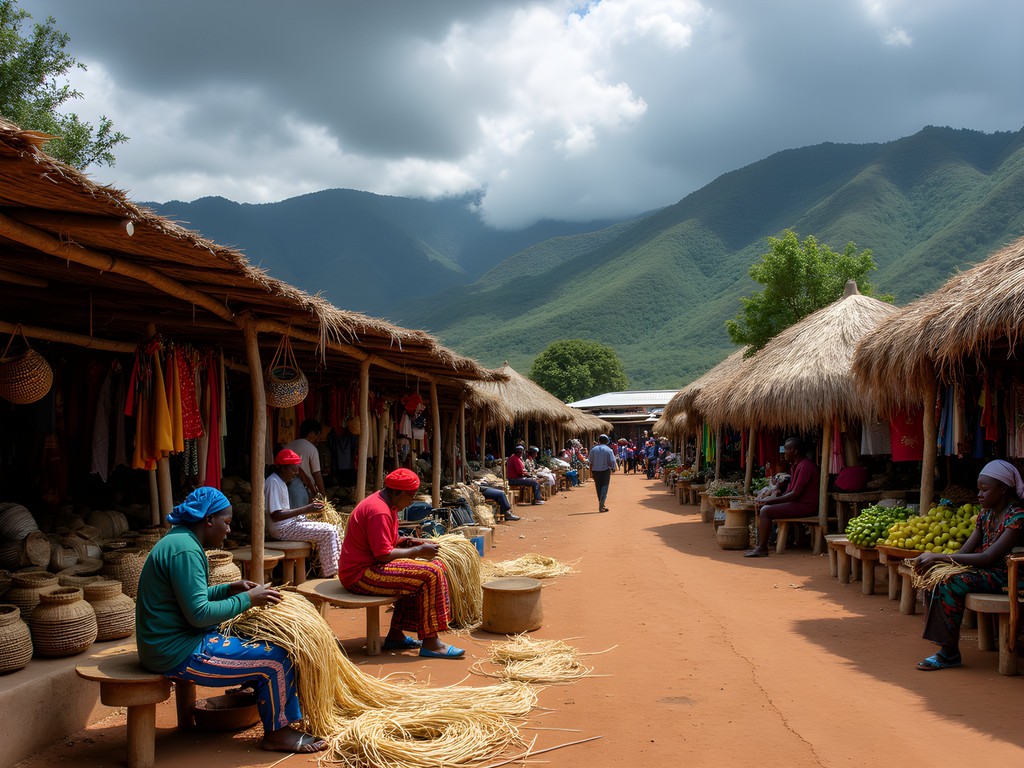
💡 Pro Tips
- Plan outdoor activities for mornings before the afternoon thunderstorms typically arrive around 2-4pm
- Visit the Ezulwini Valley Market on Wednesdays when local farmers bring the freshest seasonal produce
- Ask locals about seasonal fruits—many aren't exported and offer unique flavors you can't experience elsewhere
Mbabane's Emerging Tech Scene: Where Tradition Meets Innovation
What particularly intrigued me as a management consultant was discovering Mbabane's nascent but vibrant tech ecosystem—a dimension most travelers completely miss. The Royal Science and Technology Park (RSTP) represents Eswatini's ambition to develop indigenous technological solutions while preserving cultural identity—a balance I've seen few developing nations achieve successfully.
Unlike the ostentatious startup hubs of Singapore or Berlin, Mbabane's innovation spaces exhibit a refreshing pragmatism. At the Mbabane Innovation Hub near the University of Eswatini, I spent several afternoons working alongside local developers who are creating mobile applications for agricultural optimization—technology addressing actual community needs rather than hypothetical market opportunities.
For students interested in technology's role in developing economies, I recommend attending one of the bi-weekly meetups organized through the hub's Facebook group. These gatherings typically feature presentations on local tech initiatives followed by networking sessions where international visitors are genuinely welcomed as potential collaborators rather than tourists.
To contribute meaningfully to these conversations, I relied on my pocket translator to navigate technical terms in siSwati that didn't translate easily. While English is widely spoken in professional settings, understanding key concepts in the local language significantly deepened my engagement with the community.
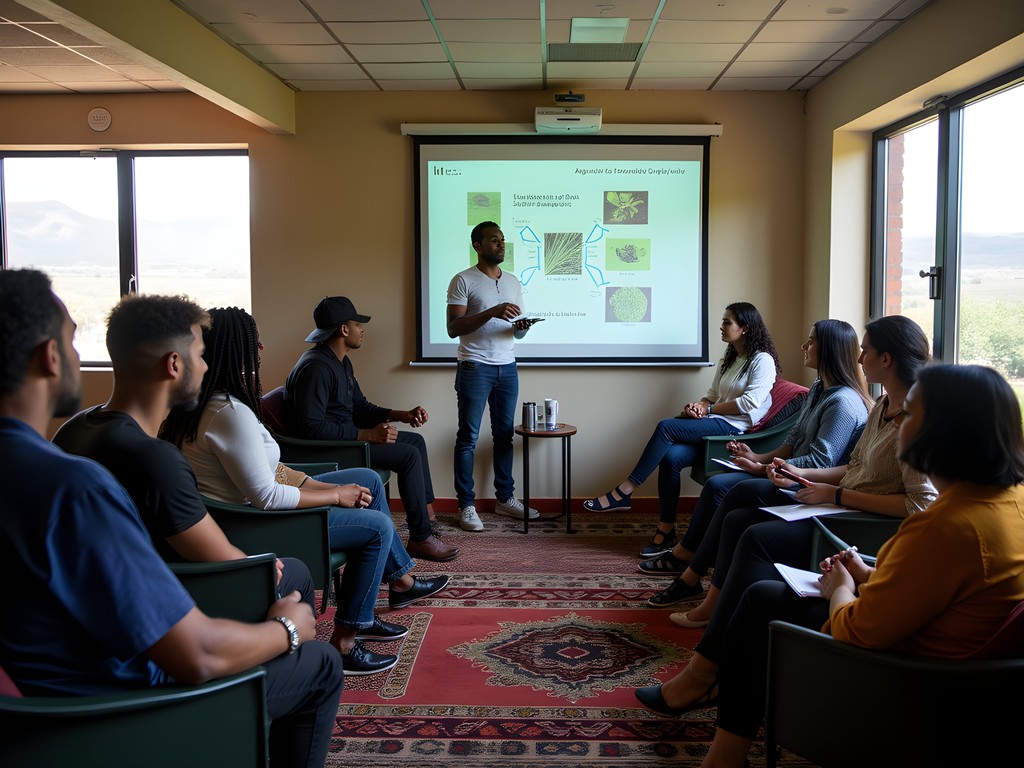
💡 Pro Tips
- Contact the Mbabane Innovation Hub through Facebook before arrival to learn about upcoming tech events
- Bring a universal power adapter as the tech spaces often have limited outlets—the South African style plug (Type M) is standard
- Offer to give an informal talk about your field of study—knowledge exchange is highly valued in the local tech community
Cultural Immersion Through Community Participation
The most profound experiences in Mbabane came not from observing culture but participating in it—a distinction that transforms travel from consumption to exchange. For budget-conscious students, this approach not only deepens understanding but often costs nothing beyond time and genuine curiosity.
The Swazi Cultural Village in nearby Ezulwini Valley offers daily demonstrations of traditional practices, but I discovered that requesting to participate rather than merely observe changed the entire dynamic. When I asked to join the women preparing traditional foods, initial surprise quickly transformed into warm inclusion. For three hours, I learned the precise technique for grinding maize with a stone mortar—a process requiring specific wrist movements that no YouTube tutorial could adequately convey.
Similarly, attending Sunday services at local churches provides insight into community structures and values. The Mbabane Alliance Church welcomes visitors, though I recommend bringing a modest wrap skirt to respect local dress codes. The three-hour services might seem long to Western sensibilities, but they offer unparalleled opportunities to understand how faith, music, and community interconnect in Swazi society.
Perhaps most memorably, I joined a community cleanup initiative in the Msunduza township after connecting with organizers through the Mbabane City Council's Facebook page. Working alongside residents to clear drainage channels before the rainy season provided insights into neighborhood dynamics, environmental challenges, and community-led solutions that no tourist experience could possibly replicate.
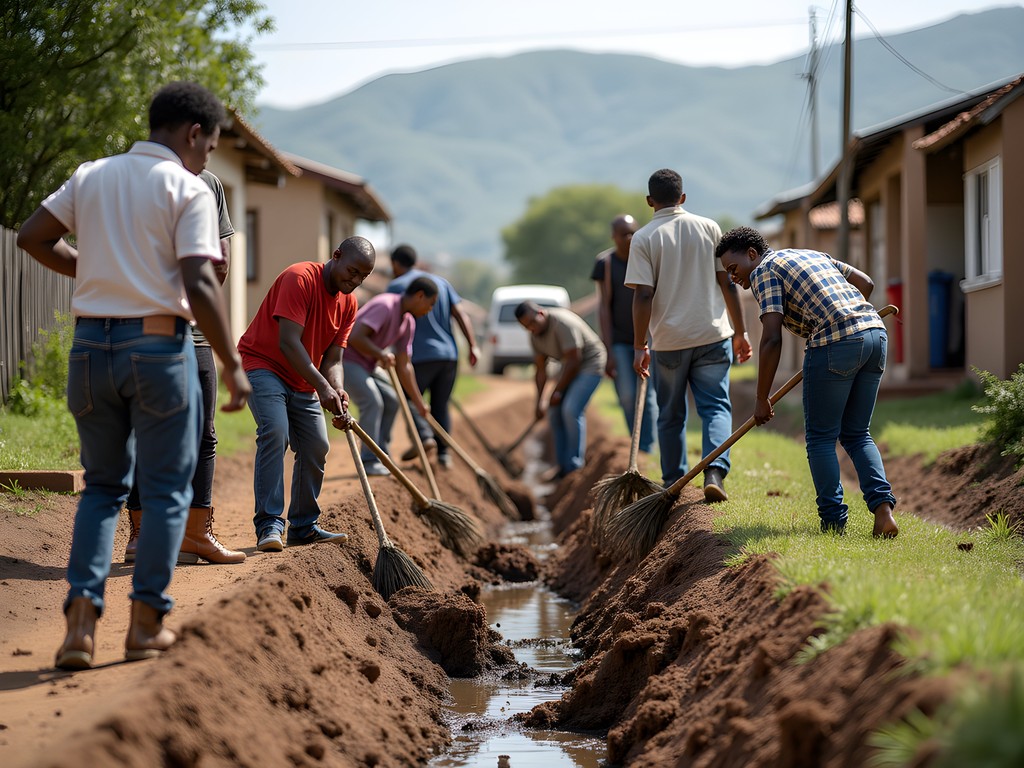
💡 Pro Tips
- Always ask permission before joining cultural activities—approach with respect and genuine interest rather than entitlement
- Bring work gloves if participating in community initiatives—practical contributions are appreciated more than financial ones
- Learn basic siSwati greetings and thank-you phrases—even imperfect attempts at the local language open doors to authentic connections
Sustainable Budget Dining: Eating Like a Local
Food often constitutes a major expense for travelers, but in Mbabane, eating like a local isn't just economically sustainable—it's a cultural education. The city's dining scene reveals fascinating intersections between traditional practices and contemporary adaptations.
Mbabane Central Market remains my top recommendation for affordable, authentic meals. The food stalls at the back serve sishwala (maize porridge) with various accompaniments for around 25 Emalangeni (£1). The vendors—primarily women who've held their positions for generations—offer living lessons in seasonal adaptation as their side dishes change based on what's currently growing in surrounding farms.
For students seeking both value and cultural context, the Mbabane Club presents an intriguing study in post-colonial evolution. Once an exclusive colonial establishment, it now welcomes everyone while maintaining architectural elements that prompt important conversations about Eswatini's complex history. Their lunch special (120 Emalangeni/£5) offers substantial portions of both local and international dishes.
Preparing your own meals provides both economic and cultural benefits. The collapsible silicone food containers I brought allowed me to purchase items at the market for picnic lunches at the stunning Sibebe Rock—a massive granite dome offering spectacular views and a perfect setting for reflecting on the day's experiences.
Perhaps most memorably, I participated in a community braai (barbecue) organized through my accommodation. Contributing 100 Emalangeni (£4) for meat and bringing a side dish created through newly learned local recipes transformed a simple meal into a four-hour cultural exchange filled with music, stories, and the kind of laughter that transcends linguistic barriers.
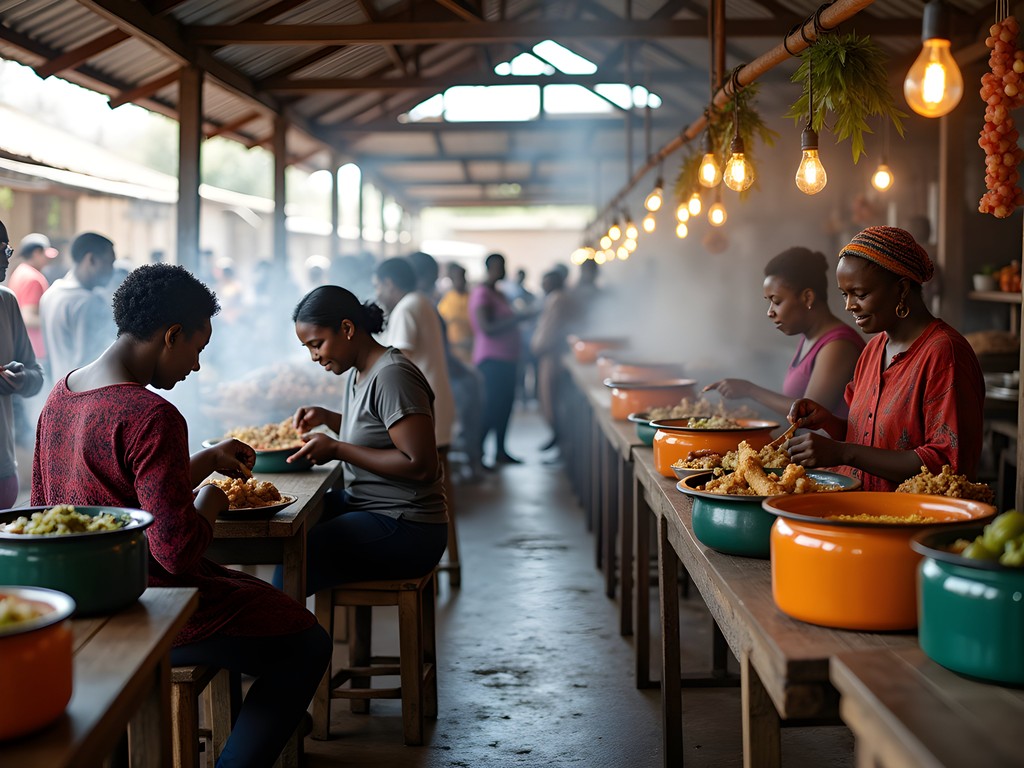
💡 Pro Tips
- Visit the Central Market around 7am when produce selection is freshest and vendors have more time for conversation
- Ask for 'phuthu' instead of 'sishwala' to signal some familiarity with local terminology—small language efforts are genuinely appreciated
- Bring a small notebook to record recipes—many vendors are flattered when visitors show interest in replicating dishes at home
Final Thoughts
As my two weeks in Mbabane drew to a close, I found myself reflecting on how this modest capital had fundamentally shifted my understanding of authentic travel. In our era of algorithmic recommendations and Instagram-optimized experiences, Mbabane offers something increasingly rare—a place where genuine human connection remains the primary currency of cultural exchange.
For students seeking meaningful immersion on a budget, Eswatini delivers extraordinary value not just financially but intellectually and emotionally. The connections between seasonal rhythms, technological innovation, and cultural preservation create a fascinating case study in sustainable development that theoretical classrooms simply cannot replicate.
What will stay with me isn't the picturesque landscape (though Sibebe Rock certainly warrants its reputation) but rather the conversations—with market vendors explaining how climate shifts have altered traditional recipes, with young developers creating agricultural apps based on indigenous knowledge systems, with elders who've witnessed their country's evolution from colonial outpost to sovereign nation navigating global complexities.
I invite you to approach Mbabane not as a destination to be consumed but as a community to be respectfully joined, if only temporarily. What insights might you gain from this small but significant corner of our interconnected world?
✨ Key Takeaways
- Building relationships with locals transforms budget limitations into opportunities for authentic cultural exchange
- Mbabane's emerging tech ecosystem offers unique insights into how traditional knowledge systems can inform modern innovation
- Participating in community initiatives provides deeper understanding than observation alone
- Seasonal awareness fundamentally shapes how locals experience their environment—align your expectations accordingly
📋 Practical Information
Best Time to Visit
Summer (November-February) for vibrant markets and cultural activities
Budget Estimate
£20-30 per day including accommodation, food, and local transport
Recommended Duration
Minimum 10 days for meaningful connections
Difficulty Level
Intermediate

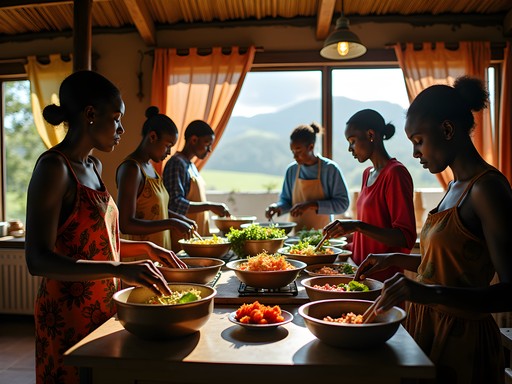
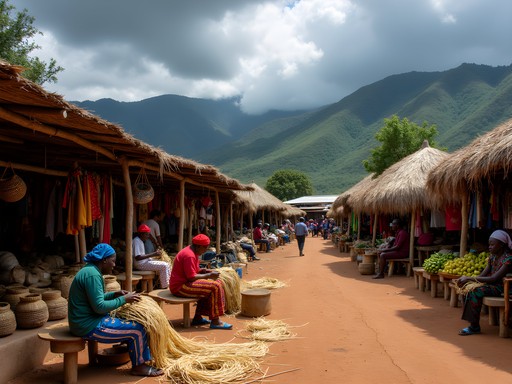
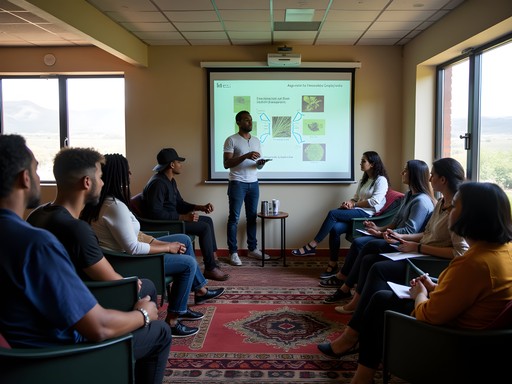
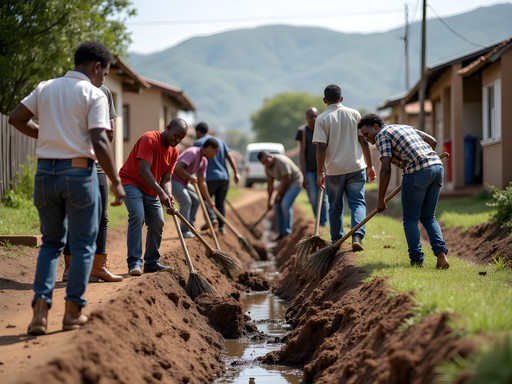
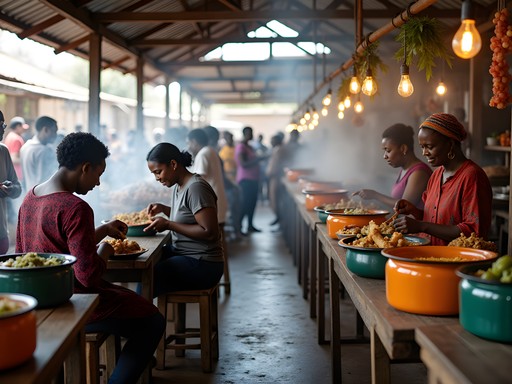


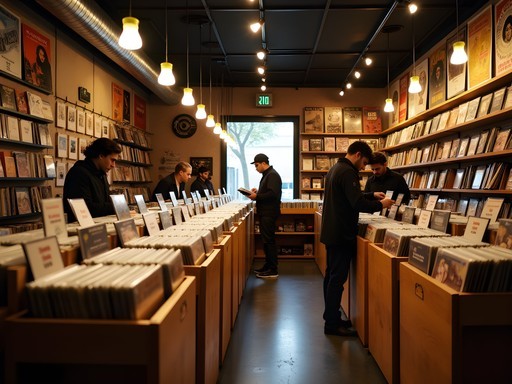
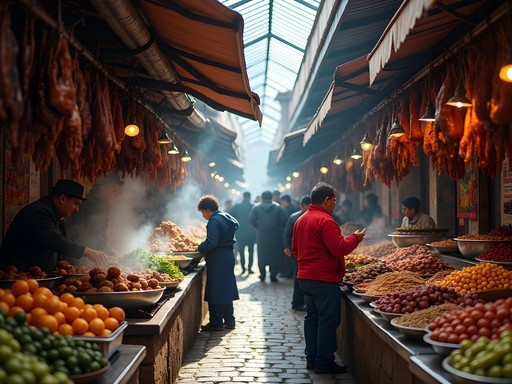
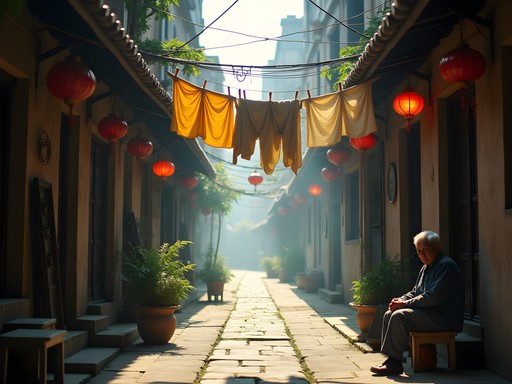

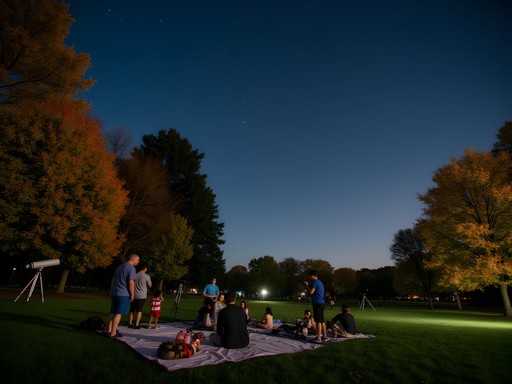
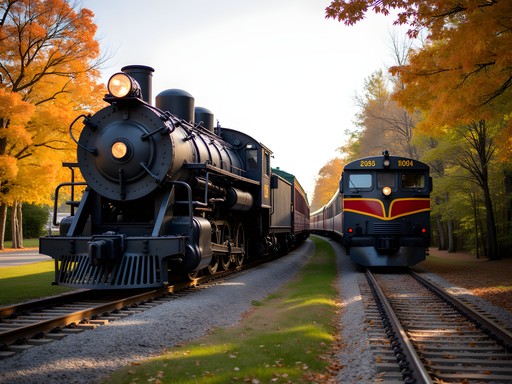
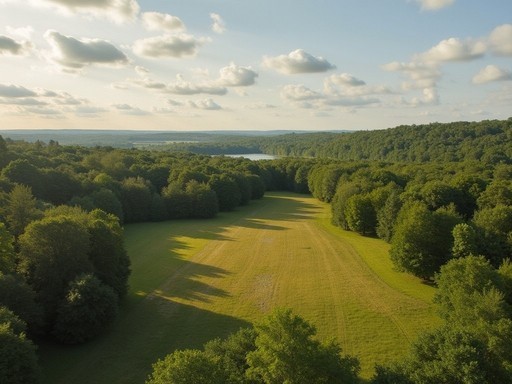
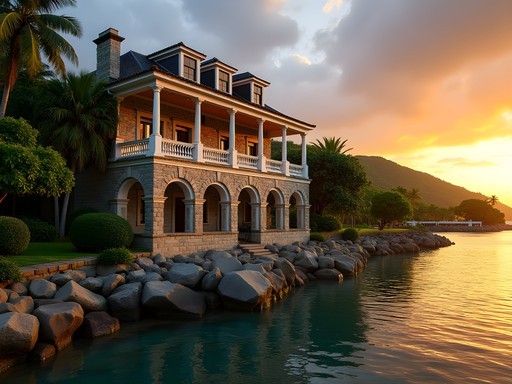
Comments
dreamzone
Adding this to my bucket list!
coffeeace
Love the photos!! The one at the market is gorgeous
Hannah Woods
Really appreciate the depth here, Naomi. The 'seasonal rhythms' section particularly resonated - I find that understanding the local calendar and natural cycles is so underrated in travel writing. Most guides just give you weather stats, but knowing when school terms are, harvest seasons, cultural events etc. makes such a difference to the experience. One thing I'd add for readers: learning even basic siSwati phrases goes an incredibly long way. The effort is always appreciated more in smaller, less touristy destinations.
exploreguide8055
Just got back from Mbabane last month! The public transport (kombis) are honestly great once you figure them out. Don't be afraid to ask locals - everyone was super friendly and helpful. Also definitely check out the Manzini market if you have time, it's only 30 min away.
dreamone
Good to know about the kombis!
dreamzone
Manzini market is on my list now thanks
beachphotographer
This might sound silly but is it safe for solo travelers? I've never been to Africa before and Mbabane looks amazing but I'm a bit nervous. Also how's the wifi situation if you need to work remotely?
Hannah Woods
Not silly at all! I haven't been to Eswatini specifically, but generally smaller African capitals tend to be quite safe with normal precautions. The wifi question is key though - would love to hear Naomi's take on that for digital nomads.
Kimberly Murphy
Naomi, this is absolutely brilliant! I spent three weeks in Southern Africa last year but completely skipped Eswatini - massive regret now after reading this. The tech scene angle is fascinating - I had no idea there was that kind of innovation happening in Mbabane. Would you say two weeks is the sweet spot for really getting under the skin of the place, or could you get a decent feel in say 7-10 days? Planning my next trip and this has jumped straight to the top of my list!
coffeeace
I'm curious about this too! Only have a week available
dreamone
Been wanting to visit Eswatini for ages! This is so helpful
Jean Wells
Naomi, your section on Mbabane's tech scene particularly intrigued me. During my visit last year, I was similarly surprised by the juxtaposition of traditional culture with digital innovation. I spent time at the Royal Science and Technology Park and met several entrepreneurs developing apps for agricultural efficiency - fascinating work! I'd add that the best time to experience this duality is during the annual Eswatini International Trade Fair (August/September) when traditional crafts and tech startups exhibit side by side. Did you notice how the younger generation is navigating these two worlds? I found their perspective on cultural preservation through technology particularly insightful.
Naomi Bennett
Jean, you're absolutely right about the younger generation! I had coffee with several university students who were creating apps to document and preserve traditional knowledge and ceremonies. They see technology as a way to keep traditions alive rather than replace them. I missed the Trade Fair though - sounds like I need to plan another visit!
citychamp4009
OMG I never considered Eswatini as a destination but your post has me TOTALLY convinced!! Those community markets look AMAZING and I love how you connected with locals through the tech scene! Did you need any special vaccines before going? Planning my trip RIGHT NOW!! 😍✈️
Savannah Torres
When we went, we just needed standard vaccines plus malaria prevention. The hospitals in Mbabane are actually pretty good by regional standards, but definitely get travel insurance. The locals are so welcoming to visitors - you're going to have an amazing time!
citychamp4009
Thanks Savannah! Super helpful! Can't wait!!! 🙌
coffeeway
I stayed in Mbabane for a month last year and can confirm everything you wrote about the seasonal rhythms! I was there during the Umhlanga (Reed Dance) in August/September and it was incredible. One tip for anyone going - the Swazi Backpackers hostel has the best local knowledge and they'll connect you with community events that tourists rarely hear about. I ended up helping at a local school for a day because of their connections. Totally made my trip!
photoperson
Was the Reed Dance as amazing as people say? Been wanting to see it for years!
coffeeway
Even better than the photos! Just be respectful with photography - always ask permission first. I used my compact camera rather than a big DSLR to be less intrusive.
Venture X
Premium card with 2X miles, $300 travel credit, Priority Pass